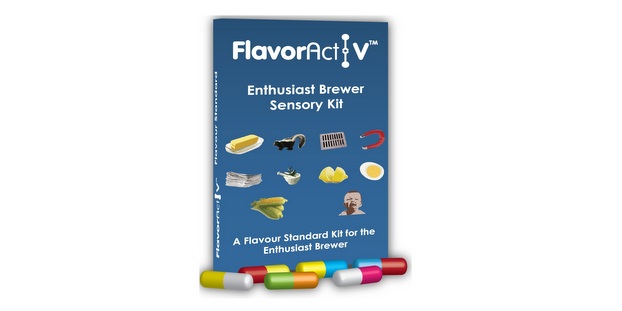
As the craft beer industry evolves, so do the quality control processes and brewing practices that are needed to meet the increased production brought on by the booming market. The way you brew today may not be the way you brew tomorrow. For instance, did you know that the bad barley harvest affected the malt, which is making its way into breweries around the nation? Where previously there were no issues, now hazes are developing and mashes are thickening, slowing the lautering process. How do you plan to handle that?
Luckily, that’s just one of the topics that the Gusmer technical brewing seminars are tackling when they roll into town this October. The first will be at Left Hand Brewing in Longmont, Colo., on Oct. 22 and focus on brewing enzymes, kettle fining agents and stabilization aids. Then, the second seminar will be at Harpoon Brewery in Boston on Oct. 27 and focus on brewing quality control analysis.
Craft Brewing Business reached out to Gusmer’s Jason McCammon, technical sales representative, and Nate Starbard, product manager, for an inside look at what will be discussed at the seminars.
Brewing enzymes, kettle fining agents and stabilization aids
“Enzymes and fining agents are tools that are sometimes hard to understand, and learning from experts in the field allows for a brewer to come away with more tools in his toolbox to make his beer better,” explained McCammon, who will be leading the Oct. 22 seminar in Colorado. “There are fining agents that can be used at the kettle, ones that can be used at the fermentation and others that can be dosed into the filtration. How do you know what is the best application for your beer? Also different beers tend to have different problems. A rye beer is more likely to have beta-glucan and protein issues. A double IPA is more likely to have colloidal stability issues.”
Enzymes, in particular, are still viewed unfavorably, McCammon explained, as a tool of larger “corporate” brewers to make light beers with less flavor. However, he was quick to point out that craft brewers are becoming split on the topic. Older generations of brewers tend to favor a standpoint of “no enzymes, period” or the like. While younger and more educated brewers understand that enzymes are a necessary part of the conversion process (enzymes are in malted barley) and that enzymes can help in troublesome situations such as slow lautering or low starting gravities. Take the earlier problem of the bad barley crop, for instance:
“Enzymes have been quite helpful in addressing these issues by dealing with the potential problem compounds before the beer has been fermented,” McCammon said. Adding some protease and/or beta-glucanase enzyme to the infusion mash can help tremendously by degrading the protein so it doesn’t cause a haze later and by thinning the wort to allow for quick lautering, respectively.”
For niche craft brewers creating gluten-free beers, enzymes are a fact of brewing life. “[They] are becoming quite popular and absolutely require enzyme supplementation,” McCammon said. “Gluten-free malt does not have the necessary endogenous enzyme activity to convert itself well enough to make beer profitably. Therefore, the use of alpha-amylase and beta-amylase to convert the starch in the gluten-free grains has gained traction. Additionally, some other viscosity-reducing enzymes have been used in the beers to make mashes easier to work with and the enzymes generally increase yields as well.”
Click here for registration information.
Quality control analysis
What’s one of the biggest hurdles keeping a craft brewery from setting up its very own quality control lab? Comfort level.
“Most new brewers aren’t familiar with lab procedures and equipment, and so while they may acquire some very basic equipment like a portable DO unit or handheld pH meter, most analysis waits until a full-time QA person is brought on board, which is often awhile,” Starbard explained. “Also, breweries often think starting a lab is a huge investment. Relative to the benefits and other investments a brewery makes, a lab is actually pretty inexpensive and pays for itself rapidly considering the extremely high cost of outsource testing and ability for process optimization.”
The quality control analysis seminar in Boston on Oct. 27 will cover some of the key tests that are done with specs such as bitterness, iso alpha and alpha acids, FAN, Tbars and VDK (diacetyl) and discuss the practical aspects of why these tests are done in breweries. For example, the benefits of the in-house testing of bitterness (IBUs) is that you save on outsourcing costs and can work to optimize hop usage or manage annual crop variability.
“Our main goal is to highlight some of the benefits in terms of optimization and quality control that even basic lab analysis can bring to a brewery as well as be available to answer any questions attending brewers have on lab analysis,” Starbard said.
Click here for registration information.
For any additional info regarding the seminar, reach out to the fine folks at Gusmer at [email protected].





Derek Needham liked this on Facebook.
Krones AG liked this on Facebook.
RT @CraftBrewingBiz: Gusmer Technical Brewing Seminars dive into quality control, enzymes and more: http://t.co/J2R8dKVQRi @gusmerbeer
#CraftBeer #CraftBrewing #Beer #BeerBiz Gusmer Technical Brewing Seminars dive into quality control, enzymes and m… http://t.co/d4wX1njsNJ
RT @CraftBrewingBiz: Gusmer Technical Brewing Seminars dive into quality control, enzymes and more: http://t.co/J2R8dKVQRi @gusmerbeer
RT @CraftBrewingBiz: Gusmer Technical Brewing Seminars dive into quality control, enzymes and more: http://t.co/J2R8dKVQRi @gusmerbeer